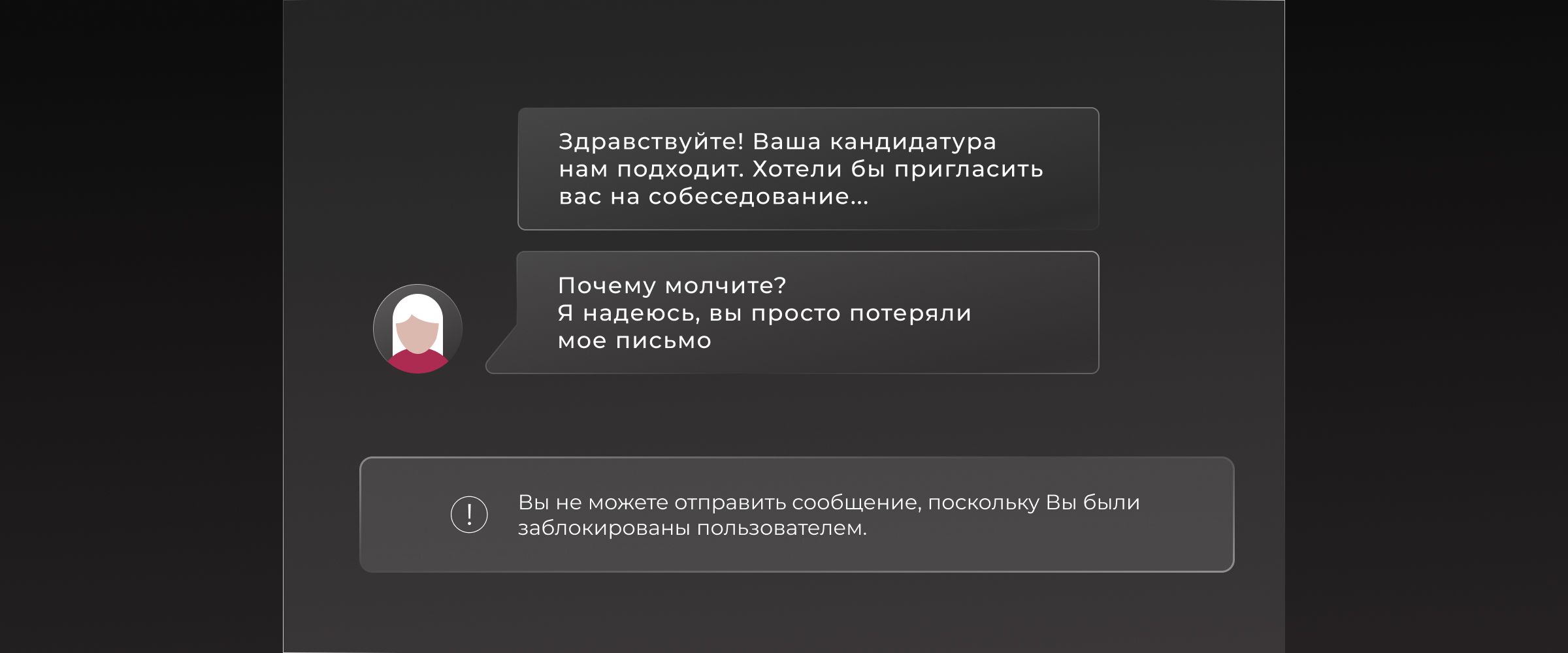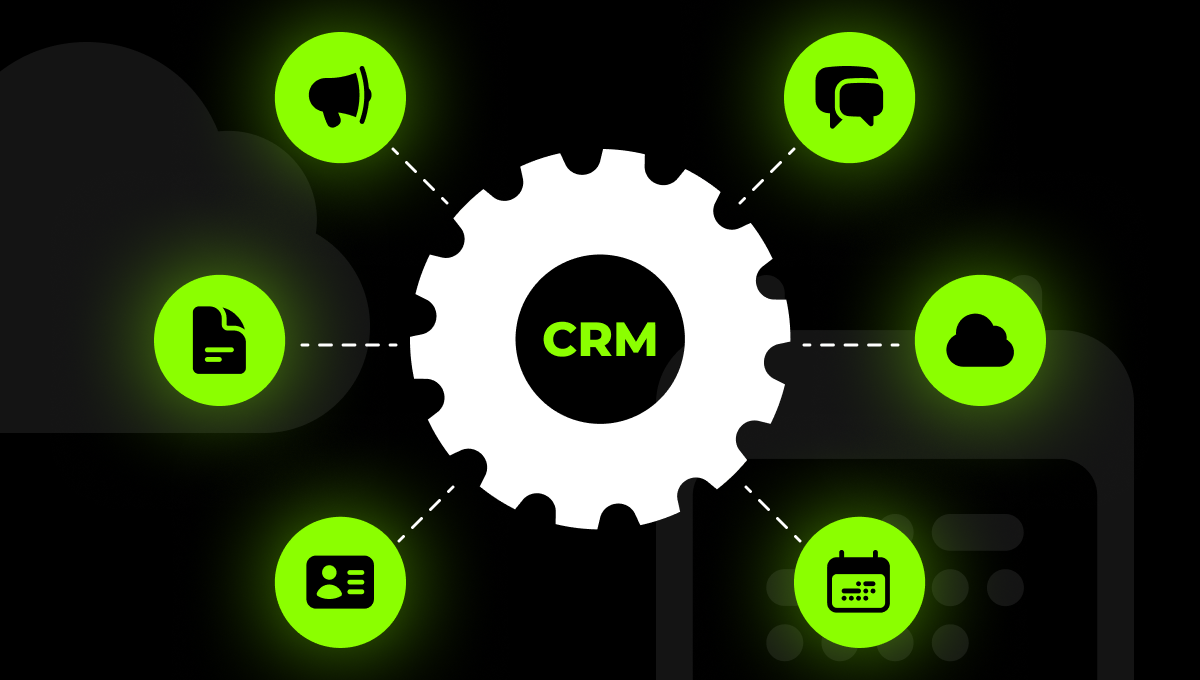As crucial as it is for companies to acquire experienced employees, they approach their hiring processes with equal seriousness. And the face of hiring is the recruiter. They are the first person candidates encounter, and based on their interaction, candidates form impressions about the entire team. However, many recruitment specialists fail to grasp the responsibility placed upon them. They mindlessly and hastily attempt to fill vacancies to collect their rewards. Yet, such an approach leads to candidates rejecting interviews and even ready job offers, also known in recruitment as offers.
We are all imperfect and prone to flaws in our work, often seeking the easy and often incorrect path. Acknowledging its non-existence is the first step in the right direction. Analyzing one's experience is the second. Finding and implementing solutions is the transition to progress.
We'll discuss the primary mistakes recruiters make in communicating with candidates and how to build dialogue to avoid offer rejections.
Mistake #1: Conducting superficial resume screenings

A common practice is inviting those who are not suitable just to meet interview quotas. For instance, a recruiter sees in a resume that a candidate engaged in programming ten years ago and sends them a developer vacancy. However, the individual has been seeking a project manager position and hasn't coded for five years. It's no wonder the candidate declines from the outset. Worse, they might agree to the interview, waste time, and only then realize they shouldn't have listened to the recruiter and "tried their luck".
Advice
Thoroughly examine the CV, focusing on the candidate's most recent job and responsibilities. Clarify the candidate's current skills and tools used in their work. Do not invite a specialist who has long shifted direction or indirectly relates to your vacancy. Before embarking on a search, understand who you are looking for. For example, developers can be frontend, backend, or full-stack, and also differ in experience and tech stack. If you are unsure about more specific selection criteria, ask the manager.
Mistake #2: Not crafting the first message thoughtfully

The main goal of the first message is to elicit a response, preferably a positive one. A captivating and well-crafted text can even lure a valuable employee from another company. Headhunting is a rather controversial method of recruiting, but it has forced recruiters to move away from template phrases to personalized appeals. However, there are recruiters who cross boundaries and completely forget about business ethics. From the candidate's perspective, both approaches are equally poor:
- Hello! My name is Oleg. I specialize in recruiting for the 'Luxury e-commerce Solutions' agency. Our company has been on the market for innovative modern technologies for 50 years. In 2000, we created a CRM system for hotels to manage relationships between guests and...
- Hi! I see you have a lot of experience in design. Do you think you're a super cool designer??? Then come join us - in our awesome team 'Wow, Layout'!!!)))) Send us your best works...
Advice
To compose a message that the candidate won't ignore, focus not on a frivolous style but on what interests the specialist. If possible, view their social media profiles. Pay attention to how they interact with the outside world: what posts they write, repost, and comment on. Find something important to them and incorporate it into your message. The medium in which you message the candidate also plays a significant role. For example, in VK personal messages, you can start with a casual question. If additional channels are not available, be as informative as possible in terms of the main criteria for a specific specialist.
VK: Hello, Vladimir. I really liked your post about how AI won't replace programmers. I completely agree with you. How long have you been involved in development?
HH: Vladimir, good day! My name is Maria, I'm a personnel manager at 'Trend IT'. The company creates and supports commercial digital projects. We've been on the market for 7 years. We currently have an opening for a 'Backend Developer in PHP'. Your skills and stack are a great fit for our team. I'd love to chat with you. Would you like to learn more about the vacancy and the company?
Mistake #3: Concealing information and luring candidates to interviews

In the age of digital technology, people are accustomed to receiving information quickly and concisely. It's always easier to Google than to go to the library and search for the right encyclopedia. The same goes for job hunting. In-demand professionals want to learn everything at once without wasting time on calls and interviews. However, there are many recruiters who believe that live communication will "tempt" the candidate to join the company. After all, they've already shown up, so now it's about convincing them to stay.
The truth is, you can't persuade them if the position doesn't meet the candidate's expectations. It's extremely rude to mislead someone and not answer their questions, citing that everything will be discussed in person. In general, such phrases look incompetent and breed distrust.
Advice
The position is a product that the recruiter "sells" based on the candidate's skills and experience. It's important for the candidate to know its characteristics: salary, working conditions, career opportunities. You should prepare answers to all the main questions in advance, demand accuracy from the manager, and promptly provide information for clarification. If the salary is determined after the interview, at least provide a range that the specialist can expect. But never deceive or embellish reality, or you might face rejection even after the offer has been agreed upon.
Mistake #4: Not providing feedback and communicating carelessly

In the pursuit of dozens of candidates for a single position, recruiters often forget whom they wrote to or what they promised to reply. A sad practice is failing to inform the candidate about the time frame for the manager's decision and losing the specialist because they didn't wait and accepted an offer from another company. Another glaring display of negligence is not paying attention to what and how you write. Lengthy responses, silence, familiarity, and poorly written messages make one wonder if it's worth working where you're treated like this.
Advice
Use a task manager, planner, or a simple notebook to systematize your work. Formulate tasks and record when, to whom, and what needs to be written. Respond promptly to candidate queries within your work schedule. Responding at any time is great! If the manager delays responding, follow up with them and inform the specialist about the timeline. If unsure about the correctness of your message, check it with a program. And use emojis only when appropriate to show friendliness.
Mistake #5: Not anticipating possible objections

The most heartbreaking situation for a recruiter is to go through all the hoops with a candidate, providing guidance, staying in constant communication, and then ultimately receiving a rejection before the specialist starts working. Yet, there's no clear reason or explanation for their change of heart. It could be assumed that they were lured away by a competitor or something happened in their personal life. However, the most common reason for such offer rejections is unvoiced doubts, which should have been addressed beforehand.
Advice
Silent concerns and objections don't just pop into a candidate's head for no reason. Check company reviews on all available platforms. If you find negative comments that can't be removed, incorporate into your job pitch how past issues were addressed and fixed. Show the brand's growth, changes, and safeguard its reputation.
Inquire about the details of leaving their previous job. Ask the candidate about their values and criteria for choosing a company. To form a clear understanding, conduct a survey in the form of a small test with multiple choice options, but include a "own answer" section. Perhaps you truly can't offer suitable conditions, but there's a chance it's untrue and their concerns are unfounded. To prove otherwise, offer the candidate to work for 1-3 trial days before employment.
Take the initiative and discuss sensitive topics directly. Are there other job offers the specialist is considering, and what are their priorities? Are they afraid to relocate or have tax issues? Are they interested in career growth and in what timeframe? Process the received information and try to find solutions if you sense any doubts from the candidate. Sometimes it's not what they say, but how they say it that matters. However, not every recruiter can recognize a person's concerns, only those who have honed their soft skills to the maximum.
IT recruiting is a battlefield for valuable specialists. Even for the HR managers themselves, especially those who understand digital product development and business needs. To enter the IT sphere and become a sought-after employee, immerse yourself in the topic and develop skills in copywriting, marketing, and psychology. Acquired skills will minimize mistakes and ensure more successful offers.





